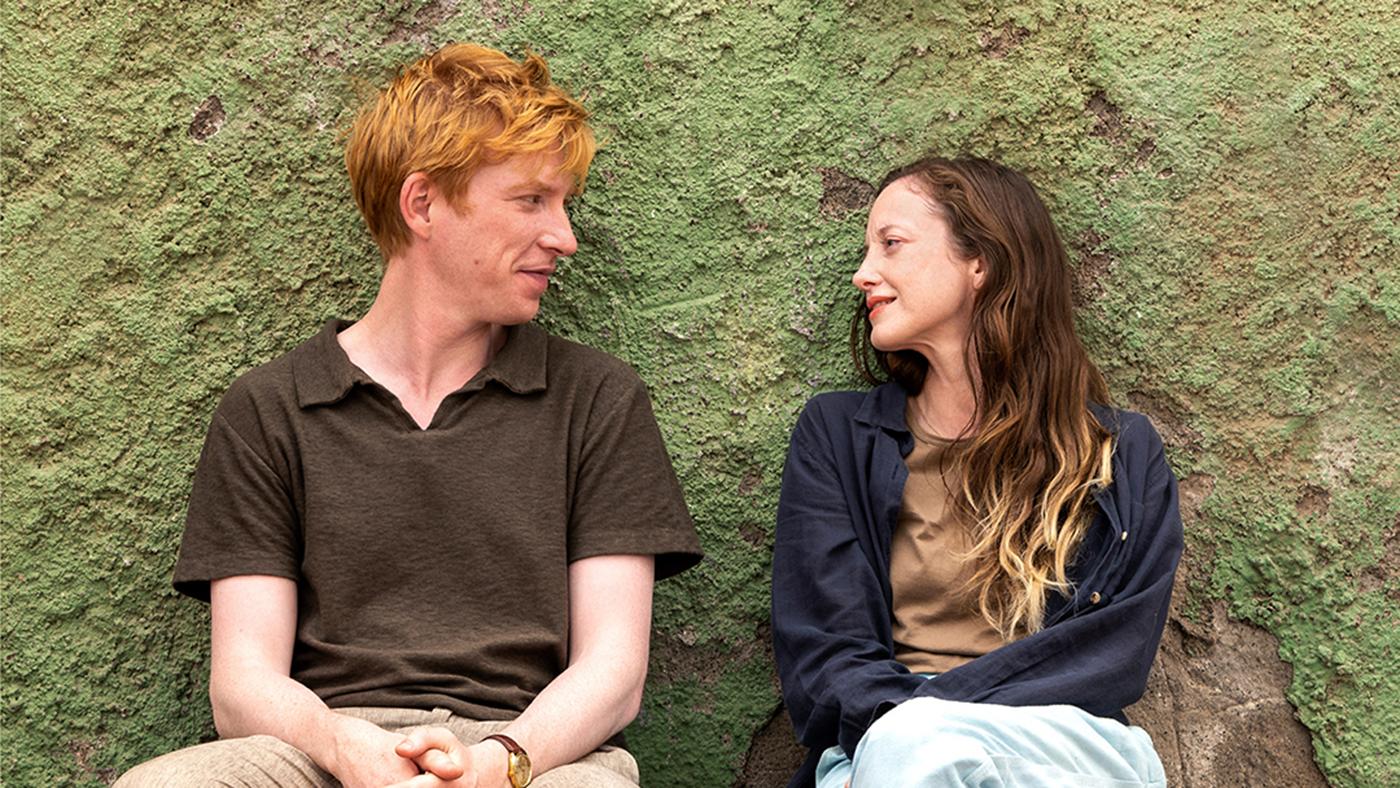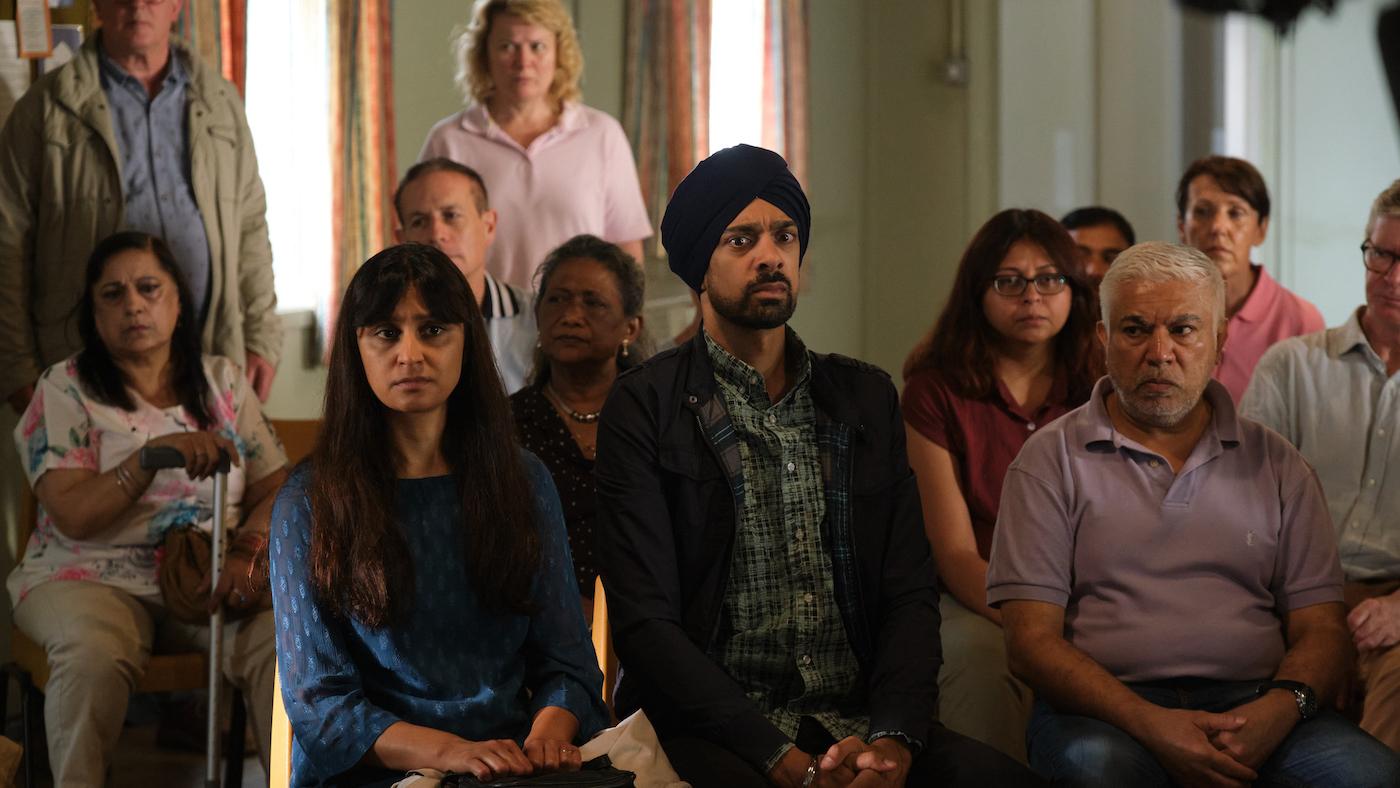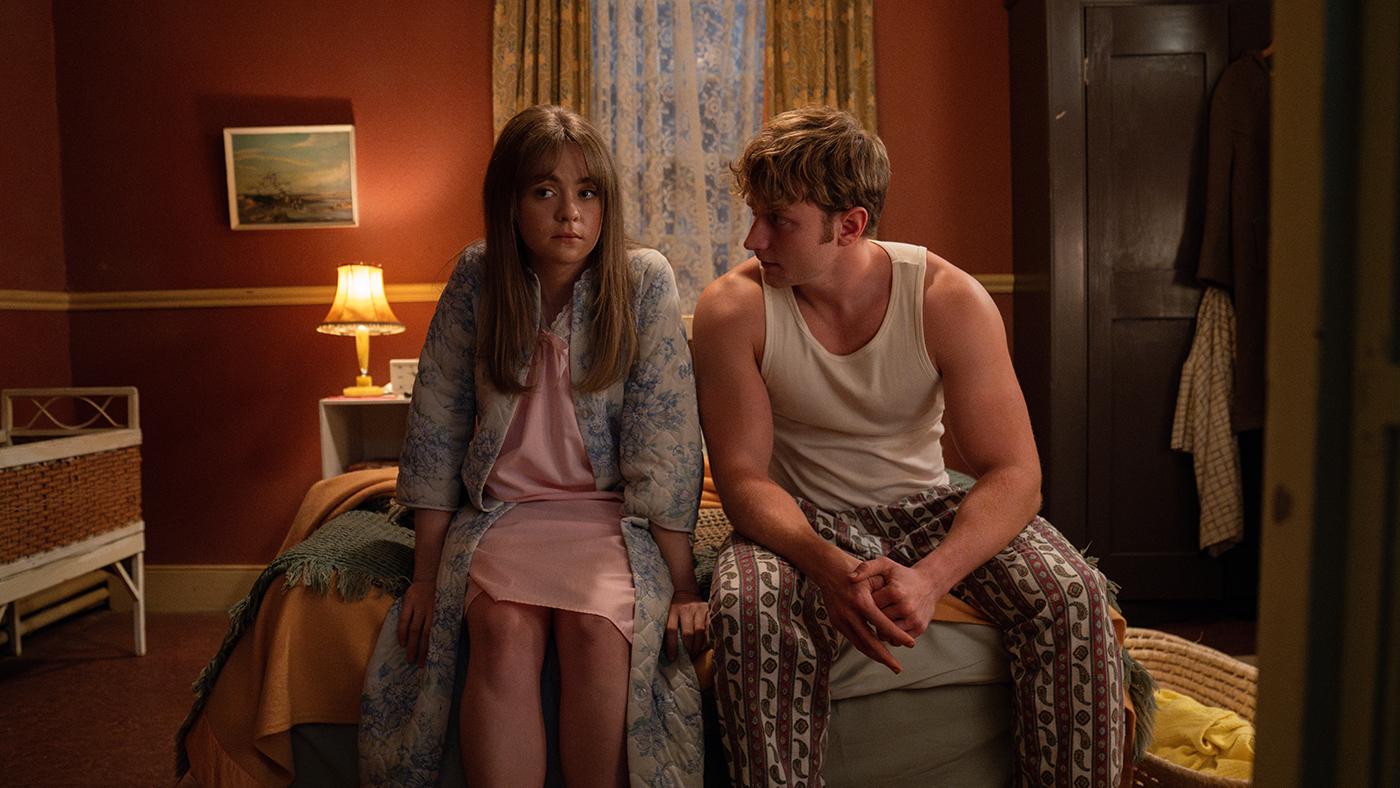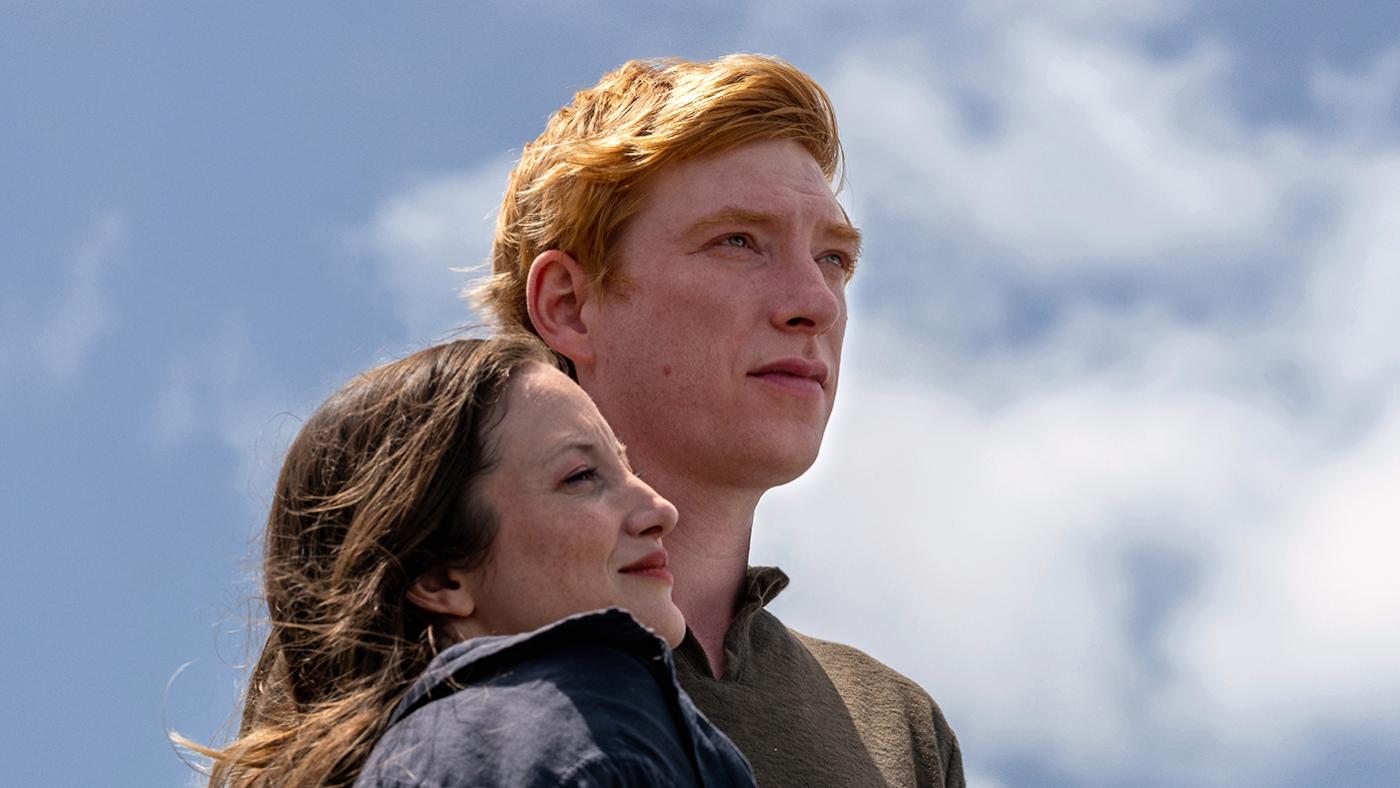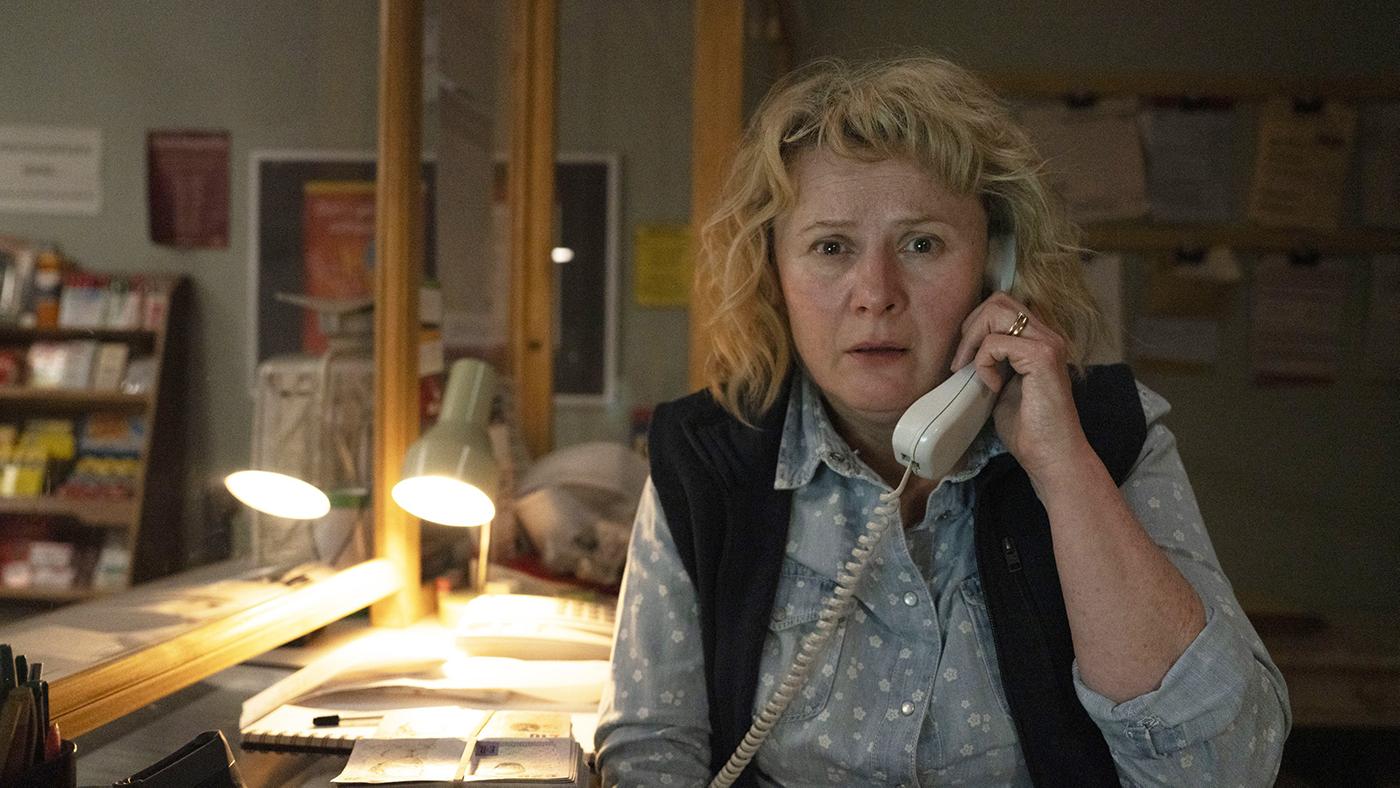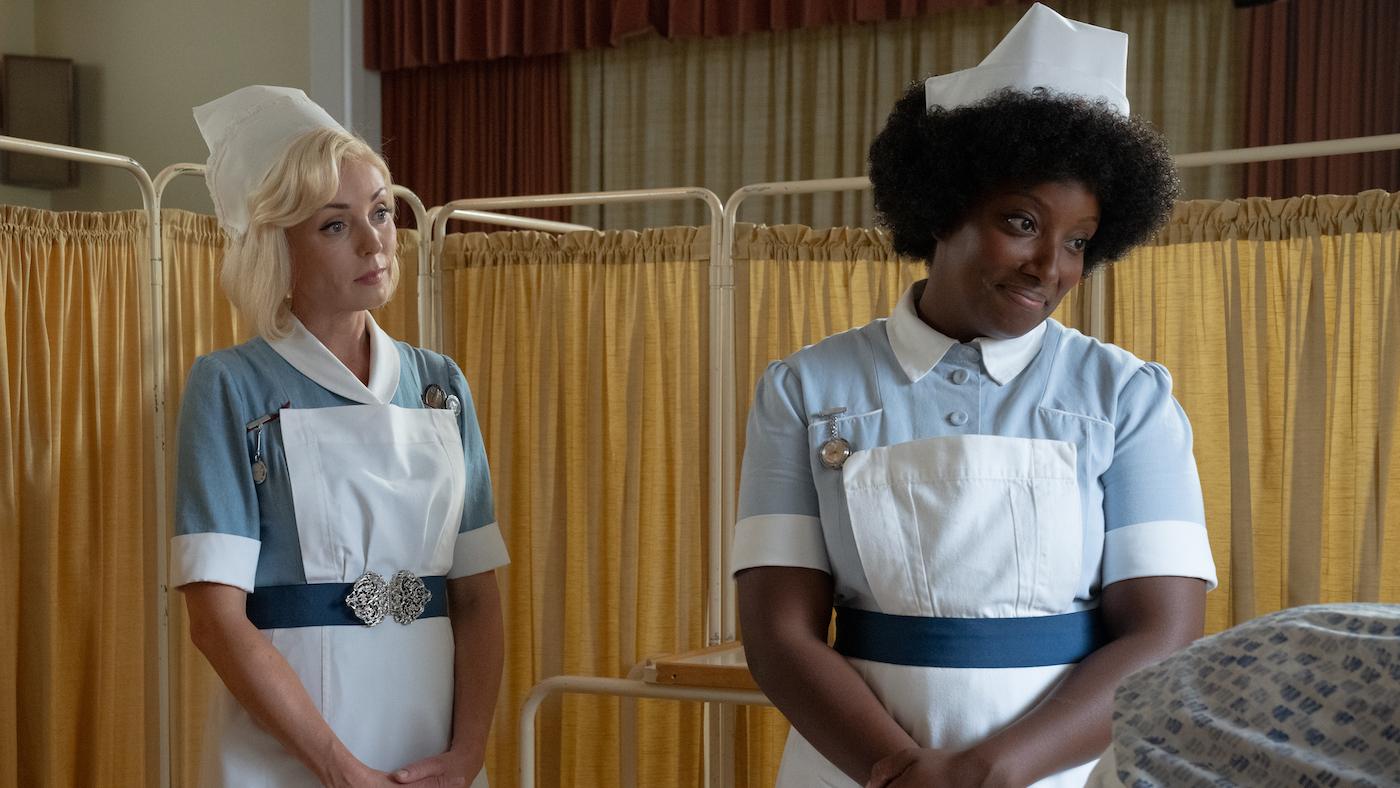'Marie Antoinette' Recap: Episode 3
Daniel Hautzinger
April 2, 2023
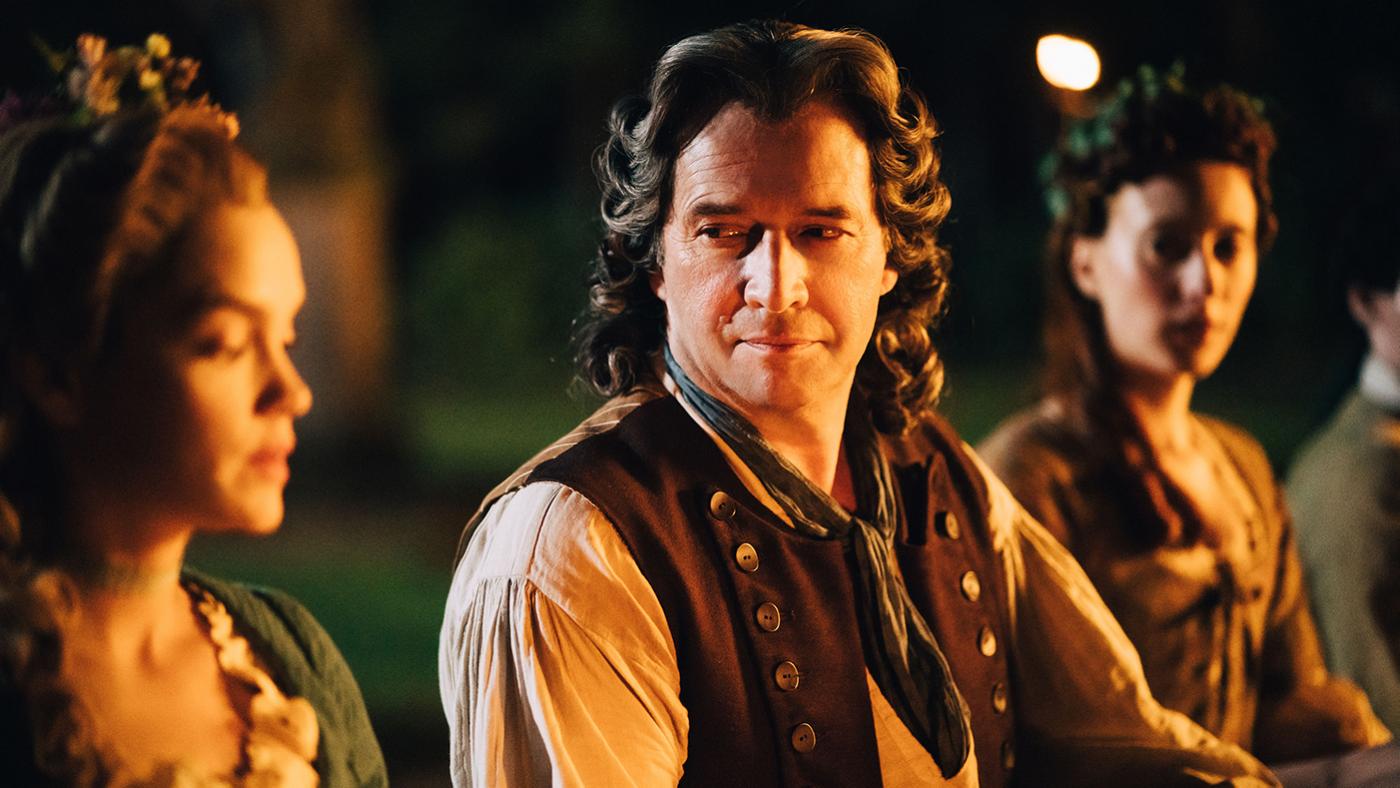
Marie Antoinette airs Sundays at 9:00 pm on WTTW and is available to stream. WTTW Passport members can stream the whole show. Recap the previous and following episodes.
Keep up with your favorite dramas and mysteries by signing up for our newsletter, Dramalogue.
Marriage is Marie Antoinette’s “career,” her mother the empress of Austria says, and thus far Antoinette has failed at her job: to produce an heir and cement the French-Austrian alliance. She can’t even get her husband Louis-Auguste to speak to her. When she is knocked off a boat by his roughhousing with his brother Provence, he doesn’t even jump in to save her. She must swim to the surface herself.
She and the royal family are on their way to Fontainebleau, a vacation spot where the king refuses to conduct any business, even though Prussia and Russia threaten France’s power by being poised to invade Poland along with France’s putative friend, Austria. Cousin Chartres is in charge of planning a “fete champetre” for the villagers to enjoy a festival at Fontainebleau alongside the royals.
The theme of the fete is “Merrie England,” but representatives of other countries may soon be arriving: Provence is ready to marry, and an Italian Savoy and Spanish princess are among the contenders. Du Barry favors the Spaniard, but the king’s daughters prefer Josephine, the Savoy—Provence’s mother’s choice of bride for Louis-Auguste. Provence sides with the daughters, solely to spite his brother.
Provence surprises du Barry by announcing his choice at a luncheon, but he is quickly humiliated when the king insists that he must first receive Louis-Auguste’s permission before the match is approved. Louis-Auguste tries to keep Provence from also being forced into a marriage—Louis-Auguste doesn’t want the throne, and is so terrified of Antoinette that he can’t speak around her—but Provence insists. After receiving his brother’s permission, he promises to deliver an heir first.
Provence’s impending marriage puts even more pressure on Antoinette to produce an heir, lest she be superseded by the coming Savoy. Her husband’s rooms at Fontainebleau adjoin hers, but the chambers’ renovations are stalled and so they are unlivable. Du Barry, of course, is in charge of furnishings, and she and Antoinette have developed a bitter rivalry. The Austrian ambassador Mercy tells Antoinette to make peace with the powerful mistress of the king, but Antoinette refuses.
Instead she appeals to the king, who is taking an increasingly lecherous liking to his grandson’s virginal wife. He promises to have Louis-Auguste’s rooms prepared, and gifts Antoinette with a horse. Du Barry dislikes his interest in Antoinette, so he asks the dauphine to make nice with du Barry in order to placate her. Before Antoinette answers, she is startled to realize that she has sexually excited the king. She begs an excuse, interrupting her time with the king until he gives her riding lessons on her new horse.
But the king’s interest has been struck. He knocks on Antoinette’s door in the night, to her terror. She flees to her friend Lamballe’s room, but even there is not safe. As Lamballe caresses a half-awake Antoinette in her bed, Chartres looks gleefully on through a crack in the door. Lamballe shoos him away.
In the same, secretive night, Provence sees the chambermaid “Julie”—Mercy’s male spy, disguised as a girl—kiss another maid. This is just after Provence has taunted his brother for his own failed attempt at a tryst. Louis-Auguste had worked up the courage to visit Antoinette, but decides, in his humiliation at finding her bed empty, to never visit again.
Unfortunately for him, he will soon be sleeping next door to her. His rooms have been finished, although they still lack a bed. Antoinette has become uncomfortable around the king, so Mercy agrees to arrange a bed himself.
The king is becoming frustrated with his grandson’s refusal to sleep with his wife: he asks him directly if something is wrong with him. The king can’t understand Louis-Auguste’s lack of sex drive; it’s the king’s biggest motivation, as du Barry knows. That’s why she tells him he’ll be sleeping alone until he gets Antoinette to publicly acknowledge du Barry, in front of the royal family.
When Mercy tells the king that Poland is to be partitioned amongst Austria, Russia, and Prussia, and requests that the king withdraw his troops from the border, the king sees an opportunity. If Antoinette will agree to a truce with du Barry, Austria can have free rein in Poland. The king has some leverage over Mercy: “Julie” bowed to him, so he has realized that there are ambassador’s spies amongst the maids.
This agreement would delight Antoinette’s mother, who has little use for Rohan, France’s new ambassador to Vienna. She’d rather deal directly with the king than through a stooge of du Barry. Antoinette doesn’t like the deal, but Mercy reminds her of her precarious position now that the Savoy Josephine is on her way to Fontainebleau, and could soon produce an heir with Provence.
Or not: when she arrives, Provence flees at the sight of her mustache and unibrow. But Josephine still manages to make Antoinette jealous: Louis-Auguste actually speaks to her.
Like Antoinette, Josephine finds that her husband-to-be won’t speak to her. Provence blames du Barry for his situation, even though she has waxed Josephine’s hair to make her more appealing to him.
Josephine does seem to enjoy Louis-Auguste, however, laughing with him at the fete, to Antoinette’s shame. Antoinette has to avoid the king, who lays a hand on her leg, but she enjoys the entertainments of the festival—until the time comes for her to curtsey to du Barry. She can’t bring herself to do it, causing the king to warn Mercy that there will be consequences.
When Louis-Auguste returns to his rooms after the fete, Antoinette asks him if he would rather have married Josephine. She demands that he speak to her, and slams the door when he doesn’t. He cries on the other side.
When the empress hears from Rohan that the King might eject Antoinette from court for failing to recognize du Barry, she shoots off a stern letter. You are a disgrace to me and a traitor to your country, she chides her daughter.
Neither Austria’s nor France’s ruler will give Antoinette a soft touch: the king has her forced into a carriage with him, where he grabs her and demands that she obey him before shoving her out onto the grass.
Antoinette curtseys to du Barry before the family goes out riding. Following that concession, Louis-Auguste leaps off his horse to help Antoinette onto her own. Later, he approaches her in her room and thanks her for her patience with him. She tells him that she doesn’t feel safe and wants to go home. He blurts out, “Don’t leave me,” and promises to protect her. They shake on it, and she lays her head on him.
Meanwhile, the king has allowed Austria to invade Poland. His new prime minister goes to du Barry in distress: the king negotiated the deal over his and Rohan’s head. Du Barry doesn’t care; she has gotten what she wanted.

